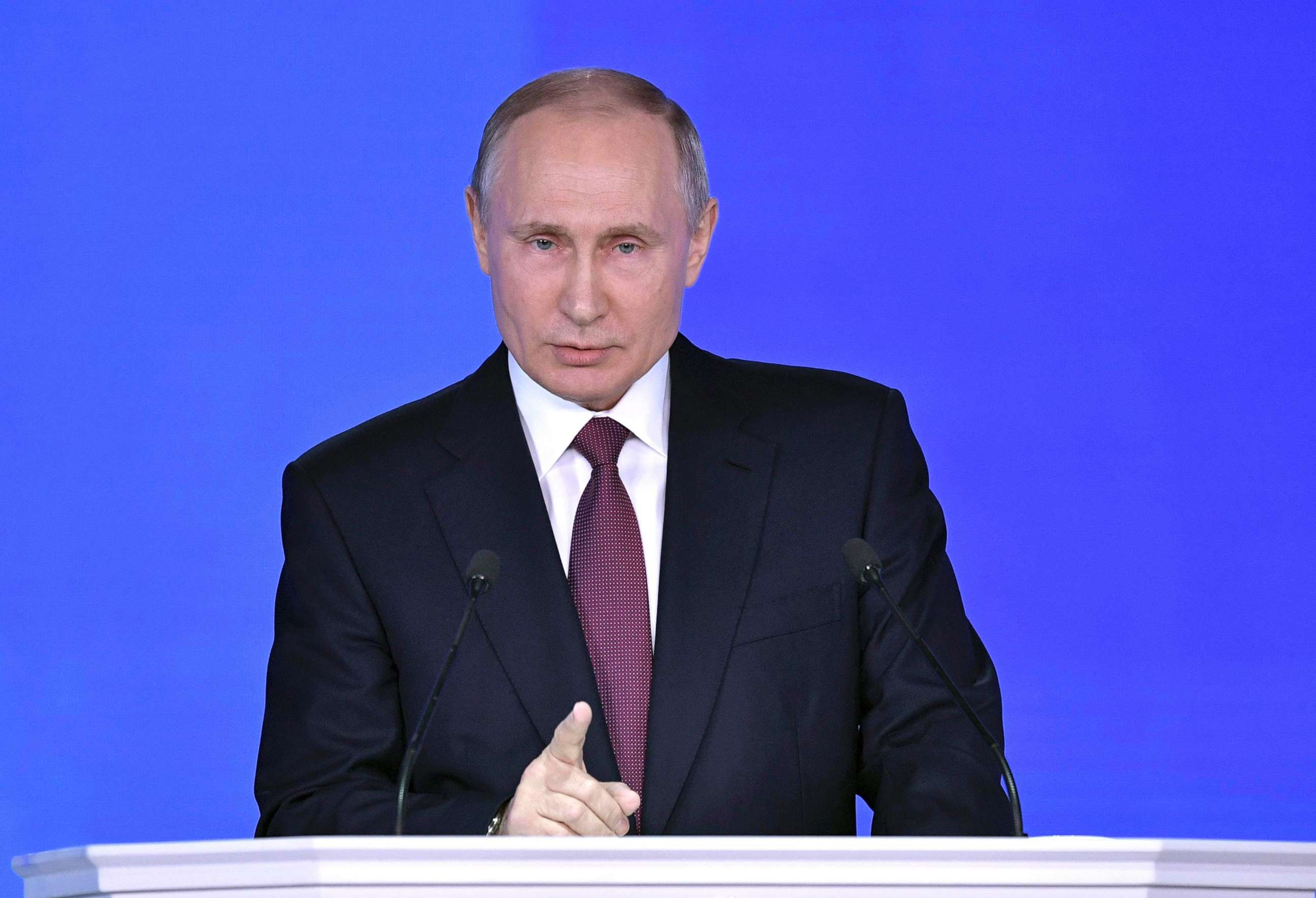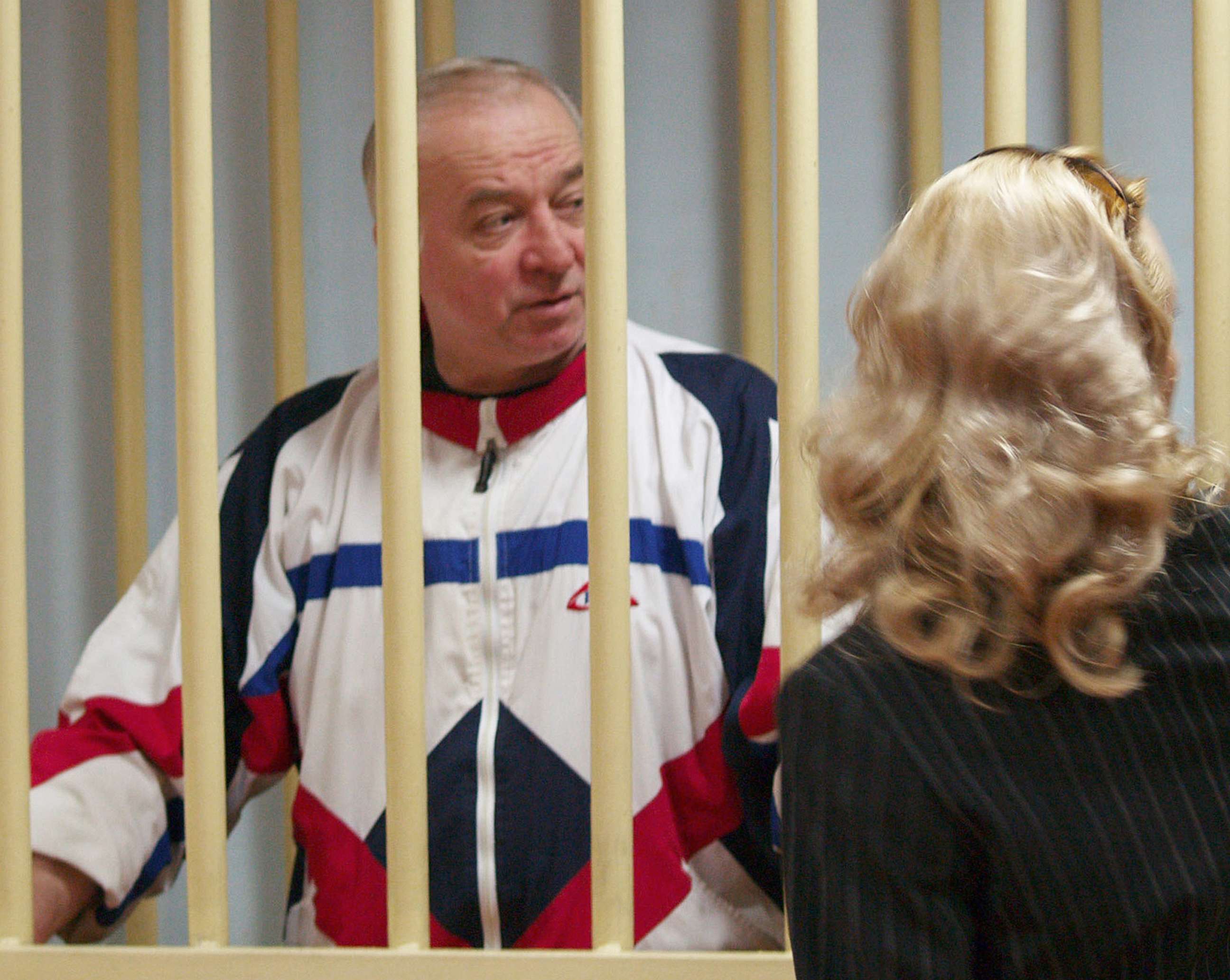US expels 60 Russian intelligence officers in response to ex-spy's poisoning
The Russians have seven days to leave the country.
President Trump is expelling 60 Russian intelligence officers from the United States and ordered the closure of the Russian consulate in Seattle, the White House announced Monday.
The expulsions are in response to the poisoning of a former Russian spy and his daughter in Salisbury, U.K., earlier this month, and done in conjunction with up to 16 other Western countries, including Germany, Canada, France, and Ukraine -- the "largest collective expulsion of Russian intelligence officers ever," according to British Foreign Secretary Boris Johnson.
Of the 60 Russians in the U.S., 12 are stationed at the Russian mission to the United Nations, where senior administration officials said they were operating under the guise of diplomacy but were deemed to be conducting covert activities. The other 48 are from the embassy in Washington and other Russian missions across the U.S.
"Today’s actions make the United States safer by reducing Russia’s ability to spy on Americans and to conduct covert operations that threaten America’s national security," White House press secretary Sarah Sanders said in a statement. "With these steps, the United States and our allies and partners make clear to Russia that its actions have consequences. The United States stands ready to cooperate to build a better relationship with Russia, but this can only happen with a change in the Russian government’s behavior."
A senior administration official said the expulsions will remove a "large number of the unacceptably numerous Russian intelligence officers who abide in the United States" but noted that more Russian intelligence operatives remain on U.S. soil. The officials didn't rule out future actions to address the remaining operatives.

The Russian government was notified of the expulsions, but the issue did not come up when Trump and Russian President Vladimir Putin spoke by phone last week. Putin's spokesperson, Dmitry Peskov, said Russia is analyzing the move and will decide on retaliatory measures "guided by the principle of reciprocity."
White House deputy press secretary Raj Shah defended the president for not raising the issue during his call with Putin, saying, "There were certainly positive developments from the call, and the president will continue diplomacy with Russia and Putin."
But he also wouldn't rule out more punitive measures against Russia or even sanctions directly targeting Putin.
"We want to work with Russia, but this type of an action cannot be tolerated," Shah told ABC News' Cecilia Vega. "The ball is in their court with respect to how they want to respond."
The U.S. and other countries who took action today are "blindly following the principle of Euro-Atlantic unity at the cost of sanity and the norms of civilized international dialogue," the Russian foreign ministry said in a statement. "It goes without saying that this unfriendly step will not pass unmarked, and we will react to it."
The Russian operatives being expelled will be given seven days to leave the country, according to senior administration officials.
Former Russian spy Sergei Skripal and his daughter, Yulia Skripal, were found slumped over, unconscious on a park bench in the southern English town of Salisbury. The U.K. has accused Russia of bearing responsibility for the March 4 attack, which British officials say involved a military-grade nerve agent of a type developed secretly by Russia -- an assessment shared by the U.S.

U.S. officials defended the administration's delay in announcing the move, saying that time was necessary to make sure the actions were taken properly and in coordination with other allies who are also announcing disciplinary responses to the Russian attack in the United Kingdom. The U.S. has been "joined at the hip" with the U.K. in its response, Shah told reporters at today's White House briefing.
Canada, Ukraine, and 14 European Union countries each expelled at least one Russian diplomat from their country. Ukraine expelled 13 Russians, followed by seven from Canada. France, Germany and Poland each expelled four diplomats.
More expulsions could be coming from other EU countries, according to Donald Tusk, president of the European Council, as well as other "measures."
"We do not act alone, we take these actions in concert with similar steps by our allies and partners around the world," said one U.S. official.
"It's been three weeks since the attack, and we're looking at this point at more than a dozen allies who are acting in coordination with us," the official noted. "That takes time and it needed to be done the right way, so I think the way that we've gone about it is the way it needed to be handled."
The expulsions are the second in less than two years. In December of 2016 President Obama expelled 35 Russian diplomats and intelligence officials and shut down two diplomatic compounds in response to Russian meddling in the U.S. presidential election. Just eight months later, the Trump administration shut down two Russian facilities in New York and Washington as well as the Russian consulate in San Francisco after Russia expelled hundreds of American diplomats and capped American mission employees.
ABC News's Alex Mallin and Patrick Reevell contributed to this report.



